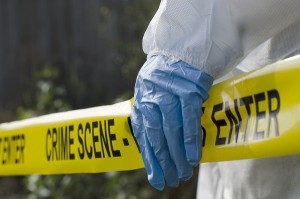

Many people automatically trust forensic science without asking the hard questions. We assume it’s accurate because it’s carried out by highly qualified scientists in white coats in labs. Unfortunately, jurors are also often influenced by this type of evidence and the credentials of the expert witnesses.
In recent years, more and more questions have been asked about the validity of forensic science methods as reports have questioned its accuracy. Even DNA, the gold standard of forensic evidence, has been undermined by new guidance that questioned the accuracy of older results.

In a recent report, The Innocence Project noted that DNA analysis plays an important role in identifying guilty people and exonerating those who are wrongly convicted nationwide.
While the DNA methodology was carefully developed at leading academic centers through vigorous research, the same cannot be said about some of the other forensic science techniques that followed it. They include:
At the same time, some forensic science techniques that have been properly tested, including blood typing, have been misrepresented in trials. Forensic analysts have fabricated results in some cases and been guilty of other misconduct.
The Innocence Project states in half of all DNA exonerations, improper forensic science was a factor in a wrongful conviction.
It points out forensic science methods like bite mark comparisons and comparing hairs and fibers are different to DNA in that they were developed specifically for solving crimes, rather than being based on an established scientific foundation in DNA.
Bite-mark evidence was first used in the 1960s. In recent years, bite-mark comparison evidence has been discredited.
In February 2016, The Wall Street Journal reported that the Texas Forensic Science Commission recommended that the state no longer use bite-mark evidence in criminal cases until more research is carried out.
The Innocence Project says forensic methods like matching a defendant’s teeth to bite marks on a victim or voice matching techniques are “cloaked in science but lack even the most basic scientific standards.”
It says forensic misconduct is not the norm, but some scientists make mistakes due to poor training and unreasonable demands. They also point to cases of deliberate misconduct.
If you have been charged with a crime and face forensic evidence against you, this can be very powerful and influential to jurors. It’s important to hire an experienced Fort Worth criminal defense attorney who can highlight potential problems with dubious forensic evidence.
Call the Medlin Law Firm today for a free consultation at (682) 204-4066.
Similar Posts by The Author:
Publicaciones Similares del Autor:
(682) 204-4066 We cannot receive pictures via text so please send those via email or hand deliver to our office.
